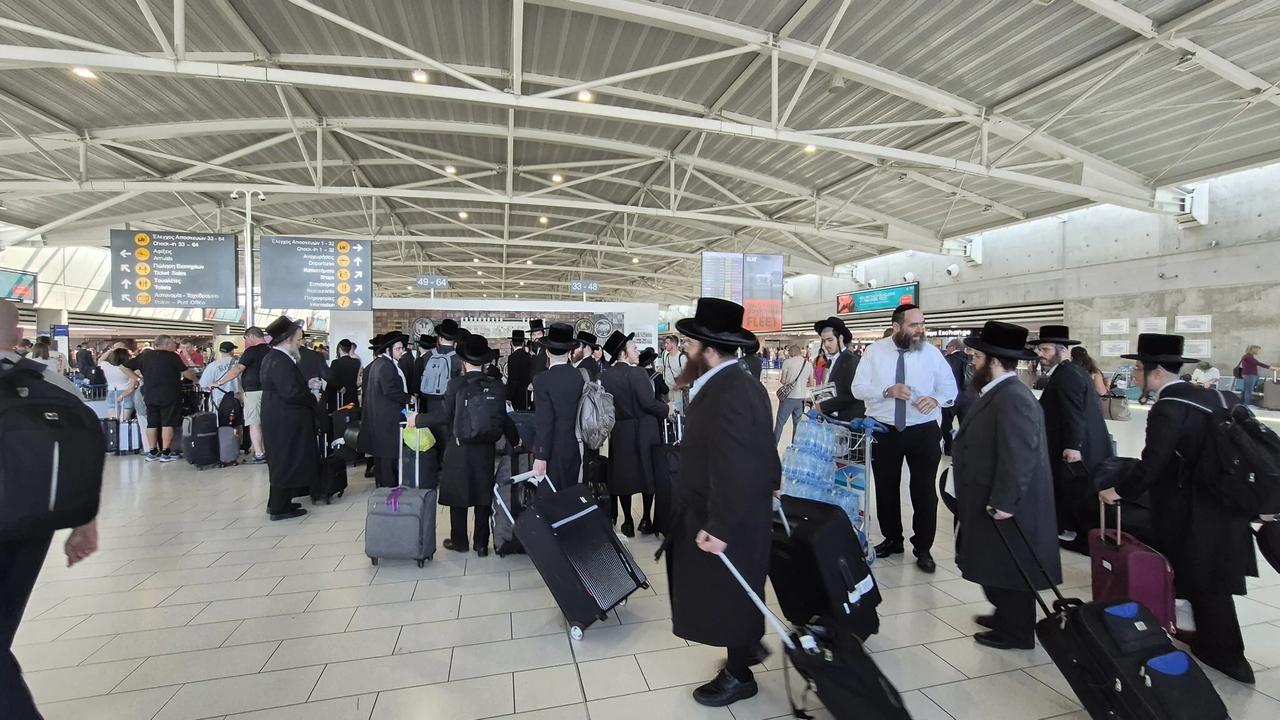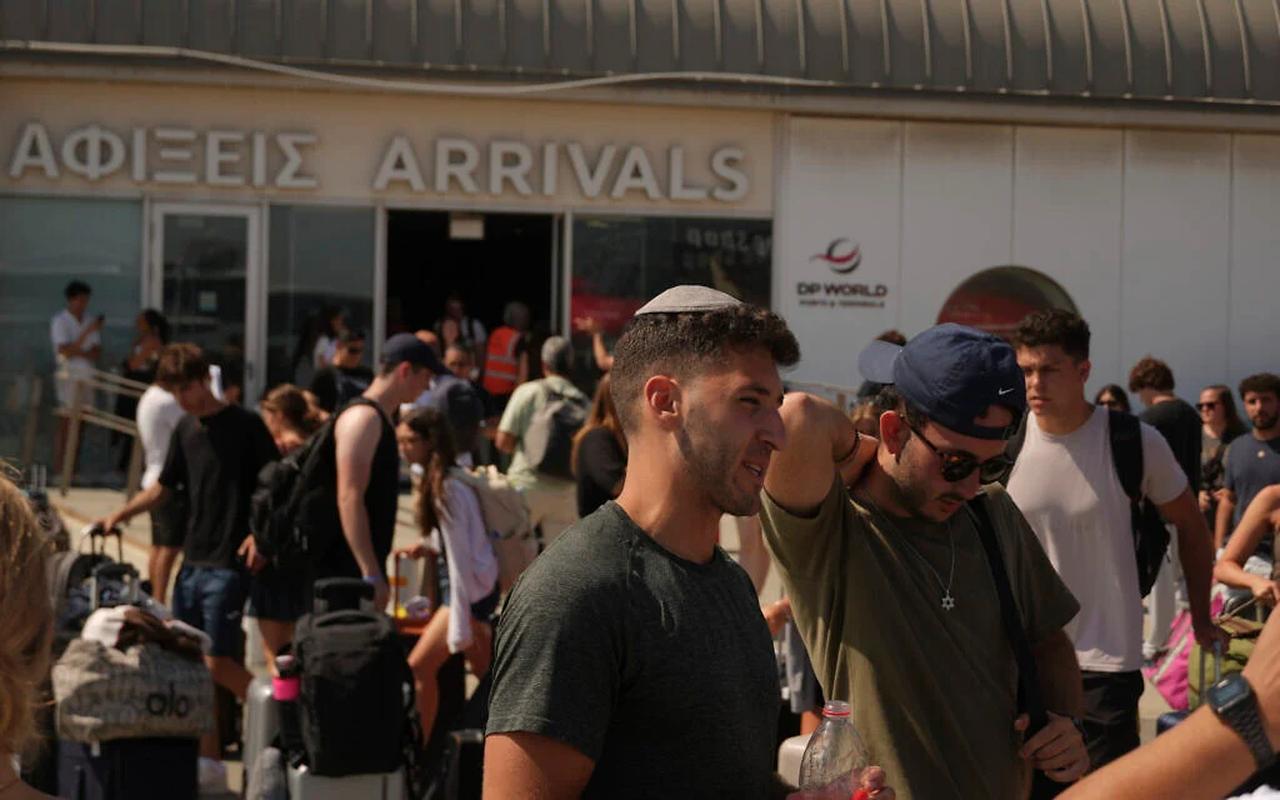
The growing influx of Israeli investors acquiring real estate in Greek Cyprus has triggered widespread public and political backlash. Particularly concentrated in the Larnaca and Limassol regions, this trend has drawn accusations from opposition figures that Israel is establishing a de facto presence on the island.
With the Israeli population in Greek Cyprus reportedly reaching around 15,000, concerns are escalating over the demographic and geopolitical consequences, especially from the perspectives of Türkiye and the Turkish Republic of Northern Cyprus (TRNC).
Stefanos Stefanu, leader of the main opposition party AKEL, described the situation as a “planned settlement strategy” and warned that Greek Cyprus is “slipping away.”
In public remarks and social media posts, AKEL has gone as far as labeling the island the “new country occupied by Israel,” signaling a serious political debate over the Israeli presence. Stefanu also claimed that Israel is forming closed communities and reshaping the region’s demographic structure in a calculated manner.

Among the organizations active in this settlement drive is Chabad, a global ultra-Orthodox Jewish movement. Reports indicate that Chabad has already established synagogues, kindergartens, kosher food offices, and cemeteries in Greek Cyprus.
Observers suggest that such infrastructure moves the community beyond mere tourism or temporary residence into long-term strategic presence, possibly enabling social influence or covert operations during future crises.
According to Milliyet, analysts view the growing Israeli population not just as a demographic shift but as a potential national security threat. In an interview with the outlet, Associate Professor Emete Gozuguzelli of the International Law Department at the Social Sciences University of Ankara emphasized the need for Türkiye and TRNC to closely monitor the situation from a geopolitical and strategic perspective.
“This is not merely a real estate issue—it is a security, intelligence, and diplomatic concern,” she said, warning of the dangers posed by religious groups with strong ideological networks. She highlighted the possibility of surveillance, propaganda, and political manipulation carried out by organized groups operating under a civilian or religious guise.
One of the key concerns involves the Chabad organization’s reach, which extends to Turkish Cyprus. These religious structures, while appearing benign, are seen as potential platforms for broader influence campaigns, including diaspora diplomacy and covert intelligence gathering. Gozuguzelli warned that these groups might serve as soft power tools and could form alternative populations sympathetic to Israeli policies, weakening the political integrity of both Greek and Turkish Cyprus.
The developments come at a time when Türkiye is already navigating complex maritime disputes in the Eastern Mediterranean. The formation of a strategic bloc including Israel, the United States, Greece, and Greek Cyprus is viewed by experts as part of a balancing effort against Türkiye’s regional assertiveness. These alliances, built around energy exploration, joint military exercises, and defense coordination, have effectively encircled Türkiye in maritime terms.
The new Israeli settlements, some argue, could serve as nodes in this larger network. If military-grade surveillance infrastructure were to be installed in key areas such as Limassol and Larnaca, it could allow for monitoring of Türkiye’s naval and air operations.
Observers warn against assuming all of the Israeli arrivals are purely civilians. Some might be dual-use actors involved in intelligence or influence operations. Open-source intelligence gathering, map-based reconnaissance, or even mobilization during conflicts are among the possible roles such a population could fulfill.
“This is not a benign wave of immigration,” Gozuguzelli noted, urging decision-makers to consider long-term implications. The growing number of organized individuals, ideologically aligned and tightly connected, may disturb not only the security landscape but also the political equilibrium on the island.

The scale of land purchases by Israelis has also raised alarms in the context of property rights and sovereignty. The concern is that the long-term consolidation of land ownership could lead to permanent geopolitical changes in the region.
Analysts warn that in future peace negotiations, such demographic and economic footholds could be used to justify new territorial claims or policy demands.
Experts also stress that the unilateral defense and settlement agreements between Greek Cyprus and Israel potentially violate the 1960 Treaty of Guarantee, under which Türkiye, Greece, and the United Kingdom are designated guarantor powers on the island. If left unchecked, such moves may undermine the island’s delicate balance of power.
Gozuguzelli recommends that Türkiye and Turkish Cyprus enhance surveillance along eastern coastal areas and strengthen air defense capabilities. The use of unmanned aerial vehicles (UAVs) for 24-hour monitoring of cross-border activity and the presence of groups like Chabad must also be evaluated at the diplomatic level.
She emphasizes the importance of linking these developments with the unresolved issue of Turkish properties occupied in the south, highlighting the legal and political contradictions involved.
Ultimately, analysts conclude that the developments in Greek Cyprus represent not only a demographic challenge but also a strategic move with direct implications for Türkiye’s maritime sovereignty and regional posture.